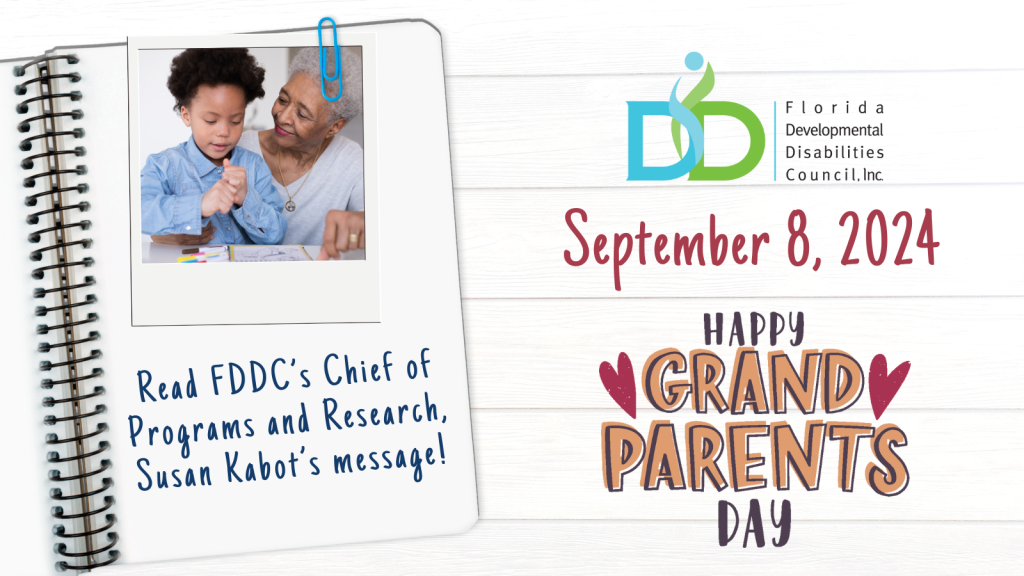When I reflect on Grandparents’ Day, I’m reminded of the powerful role my own grandparents played in shaping my life, values, and beliefs. One set of grandparents, younger and more active, would take my brother and me on weekends. I fondly recall our trips to the Hamburger Express, where toy trains delivered our meals, and our weekends at the Jersey Shore, where my pop-pop rode every ride with us—even when it made him feel a bit queasy. My other set of grandparents, though older and less energetic, always welcomed us with a pot of homemade chicken noodle soup and those unforgettable sour ball charms in a tin can.
When I became a mother myself, including to my son Mike, who has an intellectual disability and autism, I began to recognize just how vital grandparents are, especially when you have a child with developmental disabilities. Both sets of grandparents interacted with my three boys in different ways. One set provided tremendous support to my other two sons, attending their sporting events and taking them out for dinner. That grandmother would also spend hours with Mike, patiently sitting as he rewound and fast-forwarded his videotapes to his favorite scenes. The other grandmother, on the other hand, saw her role as the one who brought structure to my busy, sometimes chaotic home—reorganizing closets, straightening cabinets, and making trips to Goodwill to clear out clutter.
Through these experiences, I learned a valuable lesson: every person gives in the way they know how, and all forms of support are meaningful. Now, as a grandparent myself to four beautiful grandchildren, I try to share that perspective with my own children, especially when they compare how the grandparents engage with their kids. It’s also important, as a parent of a child with a disability, to guide your own parents in how they can best support their grandchild and the rest of your family. Whether it’s offering to watch your child with a disability while you take your other child(ren) out for some special time, tossing in a load of laundry, or preparing a meal—being specific in your requests helps grandparents feel confident in how they can help.
As a parent, there is nothing that hurts more than seeing your own child struggling to meet the needs of their family when one of their children has a disability. On this Grandparents’ Day, let’s take a moment to thank all the grandparents for their unwavering love, kindness, and support, and empower them to continue fulfilling their unique and vital roles in the lives of children with developmental disabilities.
Susan Kabot, FDDC Chief of Programs and Research

